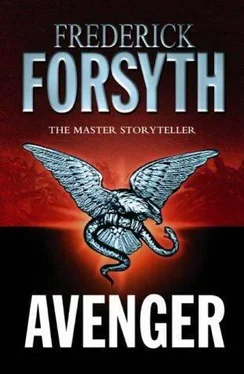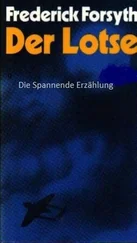Even the United States, not normally shy about its war heroes, cast no medals and raised no plaques. They came from nowhere, did what they did because it had to be done, and went back to oblivion. And their story all started because of a sergeant's tired ass.
The United States was not the first invader of Vietnam, nor the last. Before the Americans were the French, who colonised the three provinces of Tonkin (north), Annam (center), and Cochin China (south) into their empire, along with Laos and Cambodia.
But the invading Japanese ousted the French in 1942, and after Japan 's defeat in 1945, the Vietnamese believed that at last they would be united and free of foreign domination. The French had other ideas and came back. The leading independence fighter (there were others at first) was the Communist Ho Chi Minh. He formed the Vietminh resistance army and the Vietnamese went back to the jungle to fight on, and on and on, for as long as it took.
A stronghold of resistance was the heavily forested farming zone northwest of Saigon, running up to the Cambodian border. The French accorded it their special attention (as would the Americans later) with punitive expedition after expedition. To seek sanctuary the local farmers did not flee; they dug.
They had no technology, just their antlike capacity for hard work, their patience, their local knowledge, and their cunning. They also had mattocks, shovels, and palmweave baskets. How many million tons of dirt they shifted will never be calculated. But dig and shift, they did. By the time the French left after their 1954 defcaL the whole of the Triangle was a warren of shafts and tunnels. And no one knew about them.
The Americans came, propping up a regime the Vietnamese regarded as puppets of yet another colonial power. They went back to the jungle and back to guerrilla warfare. And they resumed digging. By 1964, they had two hundred miles of tunnels, chambers, passages, and hideouts-and all underground.
The complexity of the tunnel system, when the Americans finally began to comprehend what was down there, took one's breath away. The shafts were so disguised as to be invisible at a few inches' range at the level of the jungle floor. Down below were up to five levels of galleries, the lowest at fifty feet, linked by narrow, twisting passages that only a Vietnamese, or a small, wiry Caucasoid, could crawl through.
The levels were linked by trap doors, some going up, others heading down. These, too, were camouflaged to look like blank end-of-tunnel walls. There were stores, assembly caverns, dormitories, repair shops, eating halls, and even hospitals. By 1966, a full combat brigade could hide down there, but until the Tet Offensive that number was never needed.
Penetration by an aggressor was discouraged. If a vertical shaft was discovered, there could well be a cunning booby trap at the bottom. Firing down the tunnels served no purpose; they changed direction every few yards so a bullet would go straight into the end wall.
Dynamiting did not work; there were scores of alternate galleries within the pitchblack maze down there, but only a local would know them. Gas did not work; they were fitted with water seals, like the U-bend in a lavatory pipe.
The network ran under the jungle from the suburbs of Saigon almost to the Cambodian border. There were various other networks elsewhere but nothing like the tunnels of Cu Chi, named after the nearest town.
After a monsoon, the laterite clay was pliable, easy to dig, scrape back, and drag away in baskets. Dry, it set like concrete.
After the passing of Kennedy, Americans arrived in really significant numbers and no longer as instructors but for combat, starting in the spring of 1964. They had the numbers, the weapons, the machines, the firepower-and they hit nothing. They hit nothing because they found nothing, just an occasional VC corpse if they got lucky. But they took casualties, and the body count began to mount.
At first it was convenient to presume the VC were peasants by day, lost among the black pyjama-clad millions, switching to guerrillas at night. But why so many casualties by day and no one to fire back at? In January 1966, the Big Red One decided to raze the Iron Triangle once and for all. It was Operation Crimp.
They started at one end, fanned out, and moved forward. They had enough ammunition to wipe out Indochina. They reached the other end and had found no one. From behind the moving line, sniper fire started and the GIs took five fatalities. Whoever was firing had only old, bolt-action Soviet carbines, but a bullet through the heart is still a bullet through the heart.
The GIs turned back and went over the same ground. Nothing. No enemy. They took more fatalities, always in the back. They discovered a few foxholes, a brace of air-raid shelters, empty, offering no cover. More sniper fire but no running figures in black to fire back at.
On day four, Sgt. Stewart Green, massively fed up as were his comrades around him, had sat down for a rest. In two seconds he was up, clutching his butt. Fire ants, scorpions, snakes, Vietnam had them all. He was convinced he had been stung or bitten. But it was a nail head. The nail was part of a frame, and the frame was the hidden door to a shaft that went straight down into blackness. The U. S. Army had discovered where the snipers were going. They had been marching over their heads for two years.
There was no way of fighting the Vietcong living and hiding down there in the darkness by remote control. The society that in three years would send two men to walk on the moon had no technology for the tunnels of Cu Chi. There was only one way to take the fight to the invisible enemy.
Someone had to strip down to thin cotton pants and with pistol, knife, and torch, go down into that pitchblack, stinking, airless, unknown, unmapped, booby-trapped, deadly, hideously claustrophobic labyrinth of narrow passages with no known exit and kill the waiting Vietcong in their own lair.
A few men were found, a special type of man. Big, burly men were of no use. The 95 percent who feel claustrophobic were no use. Loud mouths, exhibitionists, look-at-me's were no use. The ones who did it were quiet, soft-spoken, self-effacing, self-contained personalities, often loners in their own units. They had to be very cool, even cold, possessed of icy nerves, and almost immune to panic, the real enemy below ground.
Army bureaucracy, never afraid to use ten words where two will do, called them "Tunnel Exploration Personnel." They called themselves the Tunnel Rats.
By the time Cal Dexter reached Vietnam, they had been in existence for three years, the only unit whose Purple Heart ratio was 100 percent.
The commanding officer of the moment was known as Rat Six. Everyone else had a different number. Once joined, they kept to themselves and everyone regarded them with a kind of awe, as men will be awkward in the company of one sentenced to die.
Rat Six had been right in his gut guess. The tough little kid from the construction sites of New Jersey with his deadly fists and feet, Paul Newman eyes, and steel nerves, was a natural.
He took him down into the tunnels of Cu Chi and within an hour realised that the recruit was the better fighter. They became partners underground where there were no ranks and no "sirs," and for nearly two tours they fought and killed down in the darkness until Henry Kissinger met Le Duc Tho and agreed America would quit Vietnam. After that there was no point.
To the rest of the Big Red One, the pair became a legend, spoken of in whispers. The officer was "the Badger" and the newly promoted sergeant was "the Mole."
In the army, a mere six years in age difference between two young men can seem like a generation. The older man appears almost a father figure. Thus it was with the Badger and the Mole. At twenty-five, the officer was six years older. More, he came from a different social background with a far better education.
Читать дальше










